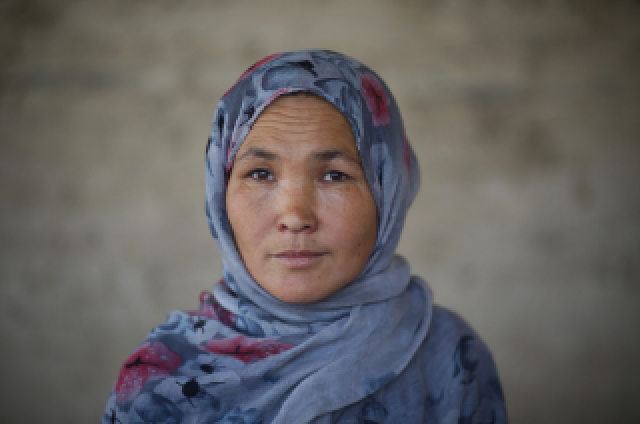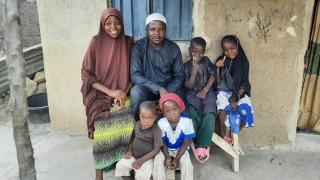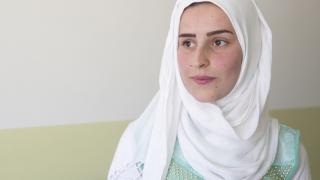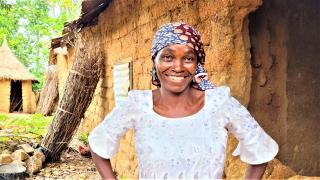Mary's story
My name is Mary
Daring to be the first female chief in my community in South Sudan
My name is Mary Ayor. I am a mother of nine, living in Ronyi Boma in Yei River County, South Sudan.
In 2016, I witnessed brutal killings and suffering when fighting broke out between the Dinka—the largest community in the country—and the Nuer, along with other tribes that were opposing the government.
During the fighting, I opened my doors and welcomed as many people as I could into my home. It became a refuge, a safe space where they could find some peace knowing the attackers would not come in since I was from their tribe.
At one point, I felt I needed to speak up and reach out to my people, urging them to end the fighting.
When the locals learnt about my efforts to stop the conflict and protect them, they appointed me as the first female Sultan—community chief—in Ronyi.
Despite my appointment as chief, some community members did not trust me. They believed I was deceiving them and would constantly suspect me. The Dinkas also saw me as a traitor, and they would threaten me. I faced many challenges, including lack of food and water, as I could not work or move around, making survival difficult. Despite these challenges, I stood my ground and refused to be intimidated.
When I became the chief, it marked a significant change for a community that had long believed that leadership positions were only meant for men. At first, I felt overwhelmed since I did not feel very confident about being able to lead. But when I joined the Women for Women International programme, I gained the skills necessary to lead and how to publicly talk about issues affecting women in my community. I also became more aware of different forms of violence impacting women.
After graduating, I continued my journey with the Women for Women International Change Agents programme, which equips women with the skills and knowledge to become leaders in their communities.
I began to advocate for women's rights and address issues affecting women in my community, especially gender-based violence.
As I interacted with women in my community, I realised that cases of rape, intimate partner violence (IPV), and early child marriage were on the rise and demanded immediate attention. I took charge of handling these cases.
When I receive reports about a rape victim, my first priority is bringing them to a safe space and making sure they are heard.
I engage them in conversation and ensure they are referred to a health facility to get treatment and support. This year alone, I have effectively managed three rape cases in Ronyi. Furthermore, I actively speak to young girls and parents about the risks of early child marriage and emphasise the importance of waiting for the right time. In the case of intimate partner violence, I summon both parties, including their family, and try to find solutions through dialogue.
With each case I handle, I see the potential for change, and it fills me with hope for a brighter future.
I envision a future where more women take on leadership roles in my community, believing that women are best equipped to represent women's issues.
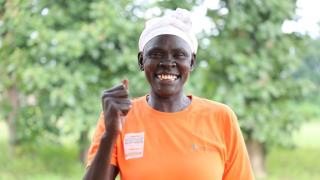
Read more stories
Ikilima
subtitle:
"My friend told me about the programme and said that I would be helped to repair the strained relationship in my family, and I would be taught how to negotiate with him so that we could have discussions as husband and wife."
Faizah
subtitle:
Faizah has always been brave – even aged 13, when her uncles tried to force her into marriage. So, when ISIS attacked her community and warned her not to flee, she harnessed that defiance and dared to find safety. Faizah dreams of a world without war; of peace for her children. Here is her story.
Grace
subtitle:
"I am very proud of myself for achieving all of this, my confidence is at an all-time high right now, and I feel like I can take on the world if the need arises."

